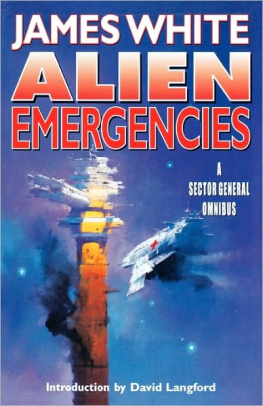This book is a work of fiction. Names, characters, places, and incidents are the product of the authors imagination or are used fictitiously. Any resemblance to actual events, locales, or persons, living or dead, is coincidental.
Copyright 2016 by Daniel Abraham and Ty Franck
Cover design by Kirk Benshoff
Cover illustration by Daniel Dociu
Cover copyright 2016 by Hachette Book Group, Inc.
Hachette Book Group supports the right to free expression and the value of copyright. The purpose of copyright is to encourage writers and artists to produce the creative works that enrich our culture.
The scanning, uploading, and distribution of this book without permission is a theft of the authors intellectual property. If you would like permission to use material from the book (other than for review purposes), please contact permissions@hbgusa.com. Thank you for your support of the authors rights.
Orbit
Hachette Book Group
1290 Avenue of the Americas
New York, NY 10104
orbitbooks.net
orbitshortfiction.com
First ebook edition: December 2016
Orbit is an imprint of Hachette Book Group.
The Orbit name and logo are trademarks of Little, Brown Book Group Limited.
The publisher is not responsible for websites (or their content) that are not owned by the publisher.
The Hachette Speakers Bureau provides a wide range of authors for speaking events. To find out more, go to www.hachettespeakersbureau.com or call (866) 376-6591.
Library of Congress Cataloging-in-Publication Data
Names: Corey, James S. A., author.
Title: Babylons ashes / James S. A. Corey.
Description: First Edition. | New York : Orbit, 2016. | Series: The expanse ; book 6
Identifiers: LCCN 2016037890| ISBN 9780316334747 (hardback) | ISBN 9780316217644 (trade paperback) | ISBN 9780316546430 (hardcover (special edition)) | ISBN 9781478965374 (audio book CD) | ISBN 9781478909521 (Audio book downloadable) | ISBN 9780316217637 (ebook (open))
Subjects: | BISAC: FICTION / Science Fiction / Space Opera. | FICTION / Science Fiction / Adventure. | GSAFD: Science fiction.
Classification: LCC PS3601.B677 B33 2016 | DDC 813/.6dc23 LC record available at https://lccn.loc.gov/2016037890
ISBNs: 978-0-316-33474-7 (hardcover); 978-0-316-21763-7 (ebook)
E3-20161109-JV-PC
To Matt, Hallie, and Kenn, who get none of the credit and make everything possible
T he rocks had fallen three months ago, and Namono could see some blue in the sky again. The impact at Laghouatfirst of the three strikes that had broken the worldhad thrown so much of the Sahara into the air that she hadnt seen the moon or stars for weeks. Even the ruddy disk of the sun struggled to penetrate the filthy clouds. Ash and grit rained down on Greater Abuja until it piled up in drifts, changing her city to the same yellow-gray as the sky. Even as shed helped the volunteer teams to clear the rubble and care for the injured, shed understood that her wracking cough and the black phlegm she spat out came from breathing in the dead.
Three and a half thousand kilometers stretched between the crater where Laghouat had been and Abuja. The shock wave still had blown out windows and collapsed buildings. Two hundred dead in the city, the newsfeeds said, four thousand wounded. The medical clinics were swamped. If you were not in immediate distress, please stay home.
The power grid degraded quickly. There was no sun to drive the solar panels, and the gritty air fouled the wind farms faster than the teams could clean them. By the time a fusion reactor was trucked north from the yards at Kinshasa, half of the city had spent fifteen days in the dark. With the hydroponic houses and hospitals and government buildings taking precedence, there were still brownouts more days than not. Network access through their hand terminals was spotty and unreliable. Sometimes they were cut off from the world for days at a time. It was to be expected, she told herself, as if any of this could have been foreseen.
And still, three months in, there came a break in the vast, blindfolded sky. As the reddened sun slid toward the west, the city lights of the moon appeared in the east, gems on a field of blue. Yes, it was tainted, dirty, incomplete, but it was blue. Nono took comfort in it as she walked.
The international district was recent, historically speaking. Few of the buildings were over a hundred years old. A previous generations fondness for wide thoroughfares between thin, mazy streets and curved, quasi-organic architectural forms marked the neighborhoods. Zuma Rock stood above it all, a permanent landmark. The ash and dust might streak the stone, but they could not change it. This was Nonos hometown. The place shed grown up, and the place shed brought her little family back to at the end of her adventures. The home of her gentle retirement.
She coughed out a bitter laugh, and then she just coughed.
The relief center was a van parked at the edge of a public park. It had a leafy trefoil icon on its side, the logo of the hydroponic farm. Not the UN, not even basic administration. The layers of bureaucracy had been pressed thin by the urgency of the situation. She knew she should have been grateful. Some places, vans didnt come at all.
The pack of dust and ash had made a crust over the gently sloping hills where the grass had been. Here and there, jagged cracks and furrows like vast snake tracks showed where children had tried to play anyway, but no one was sliding down it now. There was only the forming queue. She took her place in it. The others that waited with her had the same empty stare. Shock and exhaustion and hunger. And thirst. The international district had large Norwegian and Vietnamese enclaves, but no matter the shade of their skin or the texture of their hair, ash and misery had made a single tribe of them all.
The side of the van slid open, and the queue shifted in anticipation. Another weeks rations, however thin they might be. Nono felt a little stab of shame as her turn came near. Shed lived her whole life without ever needing basic. She was one of those who provided for others, not one who needed support. Except that she needed support now.
She reached the front. Shed seen the man handing out the packs before. He had a wide face, brown speckled with black freckles. He asked her address, and she gave it. A moments fumbling later, he held out a white plastic pack to her with the practiced efficiency of an automaton, and she took it. It felt terribly light. He only made eye contact with her when she failed to move away.
I have a wife, Namono said. A daughter.
A flash of raw anger rose in his eyes, hard as a slap. If they can make the oats grow faster or conjure rice out of thin air, then do send them to us. Else, youre holding us up.
She felt tears welling up in her eyes, stinging them.
One to a household, the man snapped. Move on.
But
Go on! he shouted, snapping his fingers at her. Theres people behind you.
She stepped away and heard him mutter something obscene at her as she left. Her tears werent thick. Hardly enough to wipe away. It was only that they stung so much.









